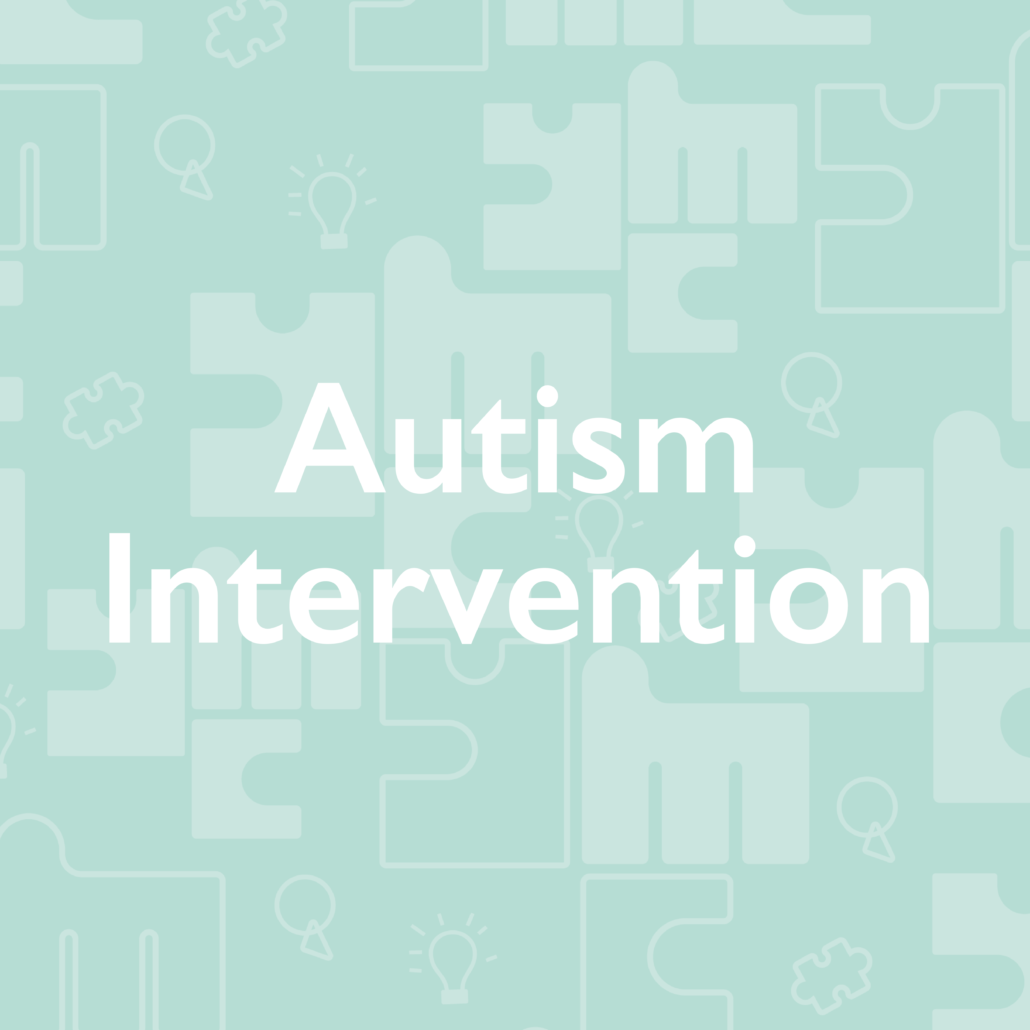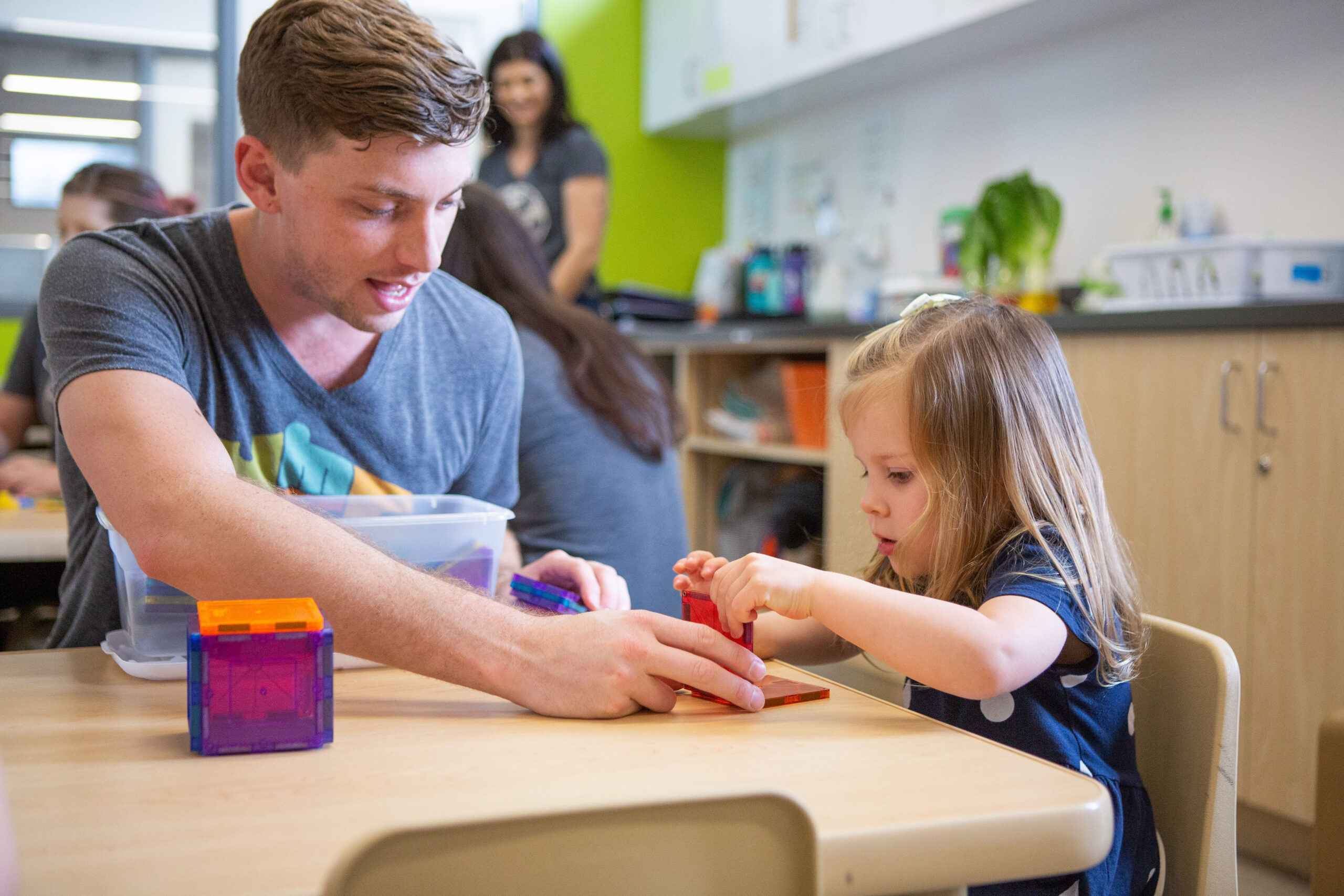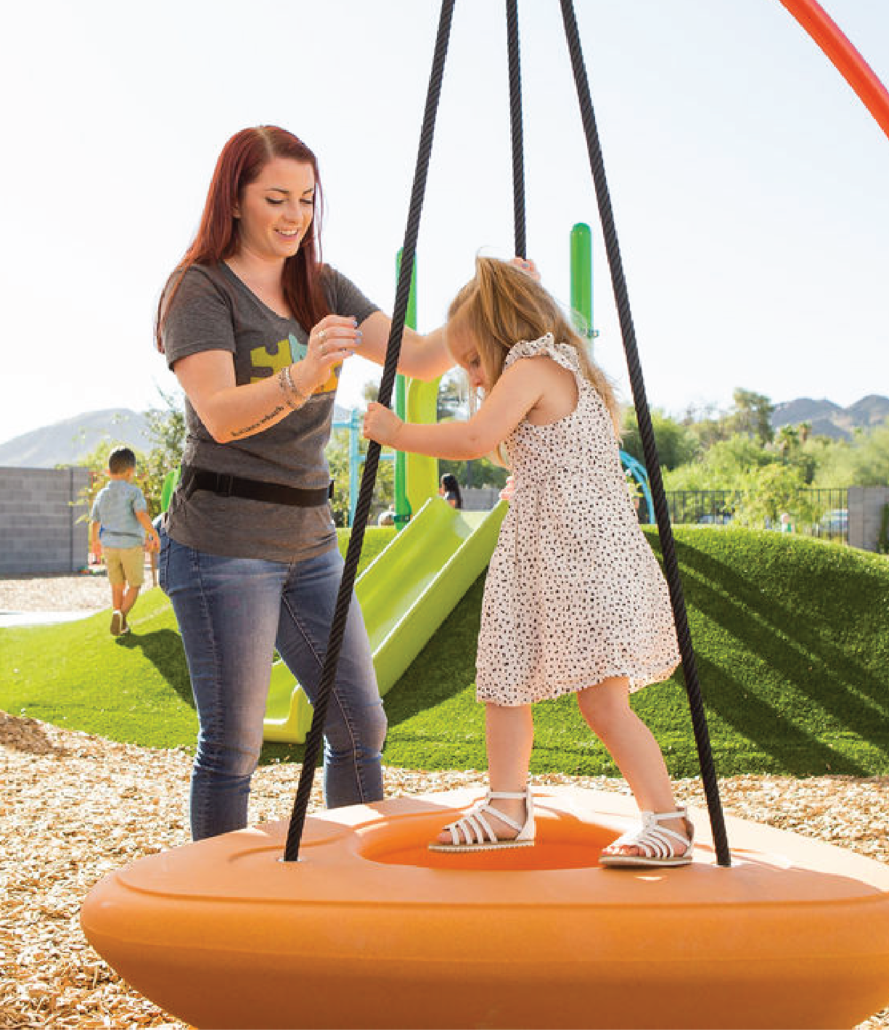


The Early Start Denver Model is an evidence-based intervention specifically developed for very young children with autism. The ESDM is designed to be highly engaging and enjoyable for the child while skills are systematically taught within a naturalistic, play-based interaction that integrates the well-validated teaching practices of ABA with a relationship-focused developmental model. The ESDM aims to improve skills across developmental domains while decreasing the symptoms of autism that impact children’s functioning.
Our transdisciplinary team includes early childhood educators, psychologists, behavior analysts (BCBAs), speech and language pathologists (SLPs), occupational therapists (OTs), and behavior instructors (RBTs). Our approach results in a team of specialists working collaboratively to deliver the best early intervention program for each child in the convenience of a single site.
What distinguishes the ESDM from the more traditional behavior interventions used with children with autism is that it combines developmental and behavioral approaches and is carried out within everyday routines. At YMCC, the intervention takes place in an inclusive preschool and focuses on the learning opportunities that exist in the social interactions young children have with other people. Children’s interests and favorite activities are utilized to ensure that social interaction is interesting and fun. The ESDM seeks to empower children with ASD to become active participants in the world, initiating interactions with other people and learning from their environment.
Core features of the ESDM include:
In 2012, TIME magazine named the ESDM a top 10 medical breakthrough because research has demonstrated that brain function among young children with autism can normalize with effective early intervention in profound, enduring ways. Additionally, the ESDM is the only comprehensive early intervention model that has been validated in a randomized clinical trial for use with children with autism as young as 18 months of age. It has been found to vastly improve language, cognition and social skills for children with autism across a wide range of learning styles and abilities.